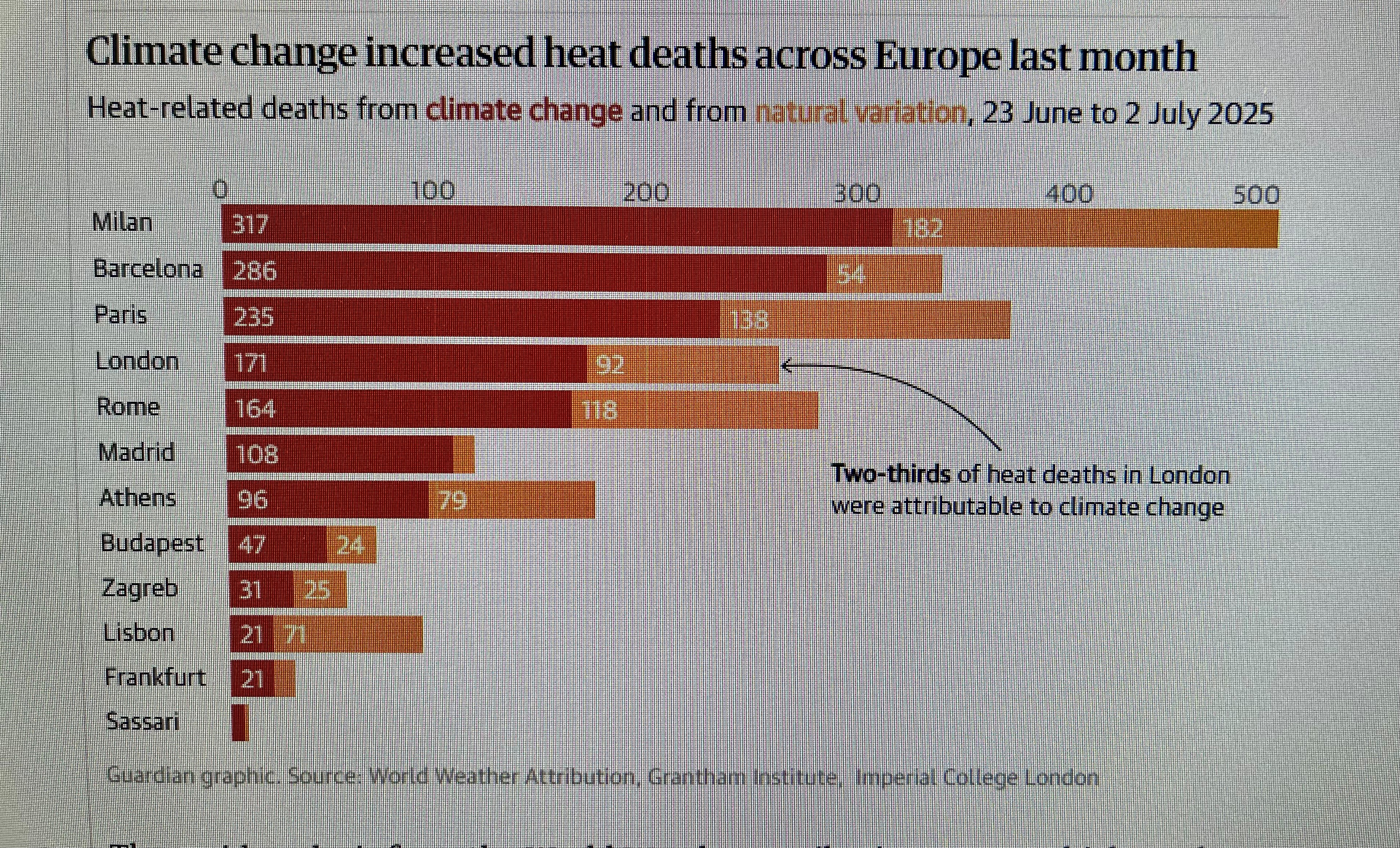An international study, previewed by the Guardian, raises the alarm. Pulmonologist Sergio Harari: Anyone taking blood pressure or heart medications should monitor their dosage. Mental health issues should also be considered.

Milan is the European city hardest hit by the recent heat wave that hit the continent between June 23 and July 2. In just ten days, the scorching heat killed 317 people in the Lombardy capital. This was revealed in the Guardian by the international scientific group World Weather Attribution, which investigated the impact of the heat wave in 12 major European cities. In total, an estimated 2,300 deaths are linked to high temperatures, of which approximately 1,500 are caused by human influence on the climate.
Milan has become the emblem of a silent but lethal crisis: that of extreme heat in an increasingly vulnerable Europe, researchers write. The data, if confirmed, says Sergio Harari, professor of Internal Medicine at the University of Milan and director of Pulmonology and Internal Medicine at San Giuseppe Multimedica Hospital, is very worrying. There is an increase in hospitalizations and health problems for the most vulnerable, especially the very elderly, who represent a significant portion of Milan's population. The concern is that what happened in 2003 could be repeated, when there was a heat wave that led to dramatic mortality, and which we hope can be prevented with measures appropriate to Milan's new climate.

Heat waves: what do they cause?
Unlike storms or fires, heatwaves don't leave images of destruction, but they claim victims in the shadows of homes and hospitals. Most of the dead are elderly: 88% of the victims attributed to climate change were over 65. Heatwaves are silent killers, explained Malcolm Mistry, an epidemiologist at the London School of Hygiene & Tropical Medicine. The news reports few official deaths, but thousands of people are dying without us even noticing.
Temperatures up 4 degrees
Using epidemiological models and local data up to 2019, scientists compared the mortality recorded in these cities with that which would have occurred in a world without climate-altering emissions.
In Milan, as in many Italian cities, the climate crisis raised temperatures up to 4 degrees above normal, transforming a heat wave into a health emergency. Climate-related deaths in the Lombardy capital surpassed those recorded in Paris, Barcelona, and London, making it the most serious case of the 12 cities examined.
The record of June 2025
June 2025 was the third warmest on record globally, according to the European Copernicus program. The Mediterranean experienced an exceptional marine heatwave, with a record surface temperature of 27 degrees Celsius. In Spain, some areas experienced 24 tropical nights—nights in which temperatures did not drop below 20 degrees Celsius, making recovery difficult and increasing health risks, especially for the vulnerable. Every year, heat kills over 44,000 people in Europe, warns Samantha Burgess, Deputy Director of Copernicus. But the numbers recorded in just a few days in just 12 cities suggest that summer 2025 will be particularly dangerous.
Milan: alarm bell
The case of Milan demonstrates how unprepared European cities are to deal with increasingly intense and frequent heatwaves. While climate change accelerates, the health, urban planning, and media response still appears inadequate. Victims of extreme heat often don't make the headlines, but the numbers speak for themselves: heat kills, and it does so silently.
Expert advice
What to do to survive the scorching heat? Avoid outdoor physical activity and, if possible, travel during the hottest hours of the day, answers Sergio Harari. Drink at least a liter and a half of water a day. Those taking blood pressure or heart medications should check their dosage. Now let's move on to diet: Varied and healthy, alcohol should be consumed in moderation due to its diuretic effect, which can be harmful. In general, it's important to reduce salty foods and avoid meals high in fat and protein, preferring pasta, vegetables, and fruit. Be careful of temperature changes from air conditioning. Ozone, whose concentrations have increased in recent days, is a strong irritant to mucous membranes (both respiratory and conjunctival). Those suffering from conditions such as asthma should pay particular attention to their medications and adjust them if necessary. Artificial tears can help with the eyes. Allergic asthmatics should also be careful not to do physical activity in parks, where smog can combine with pollen and increase its allergenic action.
Also be careful of mental disorders

